Hach Ahmed Bericalla: “The Sahara needs the Canary Islands for its future economic and social projection”
Hach Ahmed Bericalla analyzes the shift in the UN’s approach towards a negotiation based on the Moroccan autonomy plan. Bericalla, a former leader of the Polisario Front, proposes advancing towards a broad Sahrawi self-government under the umbrella of the Kingdom of Morocco, denounces that the Polisario has kept the Sahrawi people “trapped in a tunnel between exile and war” for five decades, and underlines the strategic role that the Canary Islands can play as a link between Europe and the Western Sahara.
What do you think of the recent UN Security Council resolution, which renews the mandate of Minurso, but for the first time establishes the negotiation of Morocco’s autonomy plan for the Western Sahara as the basis?
I think that, regardless of the extension of Minurso (United Nations Mission for the Referendum in Western Sahara), which is a very common occurrence in this process we have been in for 30 years, the fundamental thing on this occasion is the substantial change brought about by this new resolution, 2797. In my view, this resolution has shifted the center of gravity of the debate, perceived until now as a colonial problem, focusing instead on the need to seek a mutually acceptable political solution.
Do you see the autonomy plan proposal as a viable solution?
The Moroccan proposal can represent a basis for advancing towards a solution. The definitive solution for us has to be one where there are no losers or winners. It implies advancing in the exploration of this offer and bringing it to an agreement with a special self-government status that satisfies the aspirations of the Sahrawi people. We will have to see the magnitude of the powers and the contours that will determine this self-government.
That ‘third way’ proposed by the movement you lead is, then, to achieve a region under the Kingdom of Morocco, with high quotas of self-government, but ‘shelving’ the referendum…
Now, instead of continuing to demand formulas already totally superseded by UN resolutions and prolonging the conflict for another 50 or 60 years, what suits us, especially those originally from the territory, is to get our people out of this tunnel, and we believe that this proposal meets the conditions for an agreement acceptable to all parties to be reached. Not necessarily as it is defined in that first autonomy formula presented by Morocco in 2007, but it can advance through dialogue and negotiation to reach a much more satisfactory formula that establishes an acceptable autonomy plan in accordance with self-government standards. The Sahrawis have been trapped for 50 years in a tunnel between exile and war. There are examples like the Kurds in Iraq or Belfast (Northern Ireland) with the United Kingdom.
But do you believe you will reach a high degree of self-government under the mantle of Morocco?
This time it is a great opportunity because there is the backing of powers that offer guarantees, such as the United States and other influential powers. It is an opportunity that we must not miss so that the magnitude of the powers and the contours of the autonomous form are satisfactory for the Sahrawis. The war proposal is totally ruled out, because it cannot lead anywhere, and the reasonable thing is to explore a political solution. And the conditions are right for there to be no losers or winners.
What concrete future proposal does the Sahrawis for Peace Movement put forward for the Western Sahara?
We trust in the maturity of the institutions of the Kingdom of Morocco so that, when an agreement of this nature is reached, there will be conditions for an autonomous government to develop without difficulties. It is an opportunity for the Moroccan monarchy itself to project itself and give guarantees of what the future of a modern parliamentary monarchy will be. We have formulated a proposal that defines the contours of this future Sahrawi entity.
I have heard you talk with figures for job creation and housing in the Western Sahara.
We are talking about an emergency plan to build 30,000 or 40,000 homes to accommodate the refugee population and to create 50,000 jobs, not only for the population that returns, but also for those in the territories. Once an agreement is reached, under the supervision of the UN and the great powers, there would be a three-year transition to begin ordinary life in the territory, with an electoral process that determines the first head of the executive of the Sahrawi entity. The result would be a Sahrawi entity with a special status that must fit into the Moroccan system in accordance with recognized standards of self-government.
Do you think the Polisario should be maintained as the sole interlocutor in this political process?
We are asking the special envoy of the United Nations to democratize the political process. We cannot leave the destiny of the Sahrawis in the hands of a political group created during the Cold War era. In addition to the MSP, other exponents must participate, such as the tribal notables. We must leave the bubble of the past, put our feet on the ground, and live in the present. The Polisario is still in the past.
The Polisario Front refuses to negotiate on a basis other than self-determination and has said that burying self-determination is burying the Sahrawis. How do you respond to that posture?
I do not think that accepting the political process to reach a mutually acceptable solution implies burying anything. What might perhaps be buried is the military option, the journey to nowhere we have been on for 50 years. The fact that a process is opening with powers like the United States or Spain means we must not waste the opportunity. Continuing an asymmetrical war, which Morocco has practically defined in its favor, is an absurd path. There is a silent majority of Sahrawis who want to close the cycle of war, confrontation, and exile, and open a new one under the UN process.
You were a leader of the Polisario for quite some time. How did you come to the conviction that the current path leads nowhere?
Yes, I was the Polisario representative in Spain from 1986. I have defended and fought for the Polisario’s objectives all my life, and I have buried all my family in Tindouf. From within the Polisario, we reached the conviction that this process leads nowhere. Dragging our people into a war process with no possibility of winning it implies a political and moral responsibility for the leaders. We must lead our people to a better haven, and that is where we are now.
The Polisario says it has a lot of support, but you talk about repression in the camps…
That is the reality. The Polisario still operates according to the nature of the movements that emerged during the Cold War. The same group that founded the Polisario is in power. We tried to promote internal reforms and create a reformist current from within, but in the end, we hit a wall. In the camps, life is unsustainable: they have been depending on international charity for 50 years. Today they are almost camps of elderly people, devoid of a young population.
What about the young people?
Most of the young people have gone to Europe to seek a living. Many arrived in pateras (small, often overloaded boats) in Spain or the Canary Islands, others stayed during programs like the “peace vacations.” Some, with no other way, have joined jihadist groups in the Sahel. The priorities for youth are not war or utopian projects. Real Sahrawis want a real solution. The dilemma is clear: continue on a journey to nowhere, or look for paths that take them out of this dark tunnel.
You talk about the support of powers, but you have had this endorsement from at least Spain and the US for some time. What changes?
The substantial thing now is that, for the first time, the United States is putting its full weight behind this resolution. With it are France, Great Britain, Spain, and Germany. The American administration wants to end useless peace operations, and the one in the Western Sahara is among them. At the request of China and Russia, Minurso has been extended for a year, but they are already asking for a strategic report on its presence. The haste to reach a solution is marked by the priorities of the countries that finance these operations.
The Polisario claims that nothing can be done without its participation because there must be mutual agreement.
The right to veto is not held by the Polisario. It was held by the permanent countries of the Security Council, and two of them simply abstained. Other processes have advanced without the participation of all actors in conflict.
There is talk of Morocco’s expansionist aims and their effects on the Canary Islands, such as the delimitation of territorial waters or rare earths. What is your opinion?
I have a much more optimistic vision. The Western Sahara needs the Canary Islands and Spain. The Canary Islands will be part of the economic and social projection of the Sahara and the Sahrawi people. I see a complementary role between both regions. It is absurd to think of a Sahara without neighborhood relations with the Canary Islands or with Spain. Morocco, Spain, and the Sahara are obliged to converge, and the Canary Islands are the link that connects Africa with Europe. We are capable of creating an economic and development hub of invaluable magnitudes between the Canary Islands and the Western Sahara.
https://www.laprovincia.es/enfoques/2025/11/08/hach-ahmed-bericalla-sahara-necesita-123512841.html
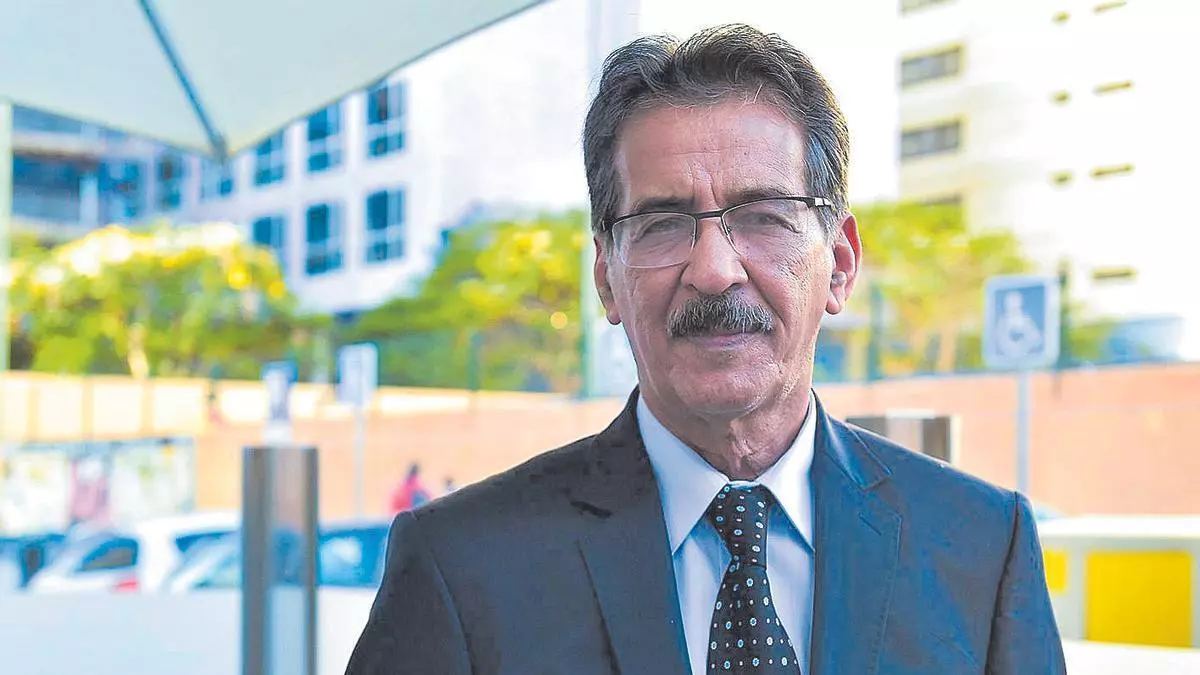
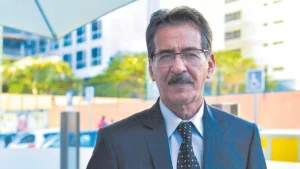
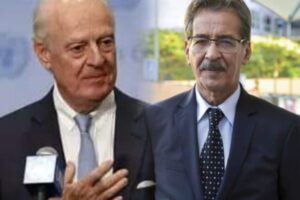
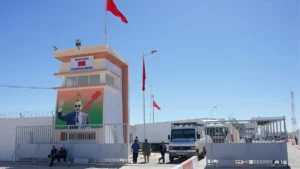
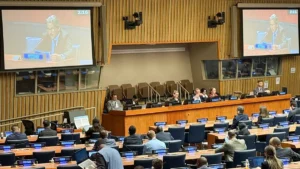

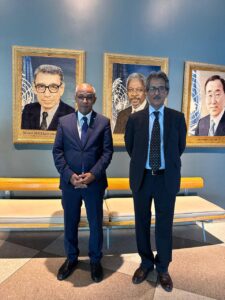

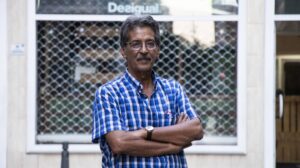
Post Comment